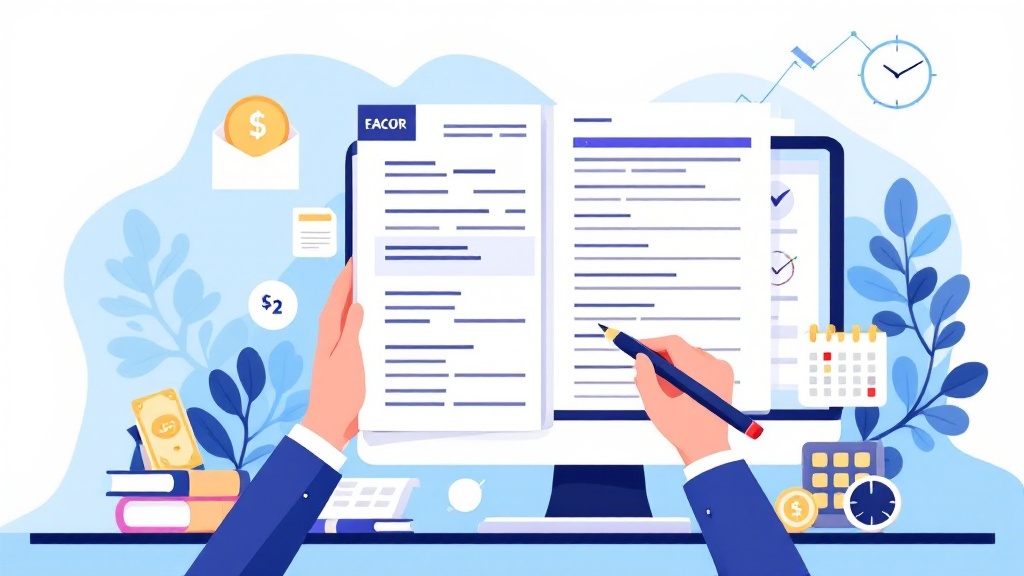Maximize Your Tax Savings with Expert Strategies
Table of Contents
- Understanding Tax Savings: What It Means for Your Business
- Key Tax Deductions and Credits
- Effective Strategies for Maximizing Tax Savings
- GST Filing and Its Role in Tax Savings
- How GST Compliance Can Lead to Tax Savings
- Capitalizing on Income Tax Filing
- Benefits of Consulting with a Tax Professional
- Long-term Tax Planning for Sustainable Tax Savings
- Importance of Hiring Expert Accountants
- Final Thoughts on Tax Savings
- Conclusion: Embrace Tax Savings as a Business Strategy
- Key Takeaways for Maximizing Tax Savings
Most Read
[fusion_dropcap class="fusion-content-tb-dropcap"]T[/fusion_dropcap]ax savings can be a game-changer for businesses looking to boost profitability and maintain financial stability. Did you know that, according to recent studies, small businesses can save thousands of dollars each year simply by optimizing their tax strategies? With ever-evolving tax laws and various deductions available, it’s crucial for business owners to be proactive about their tax planning. This blog post explores expert strategies that can help you maximize your tax savings, ensuring that you keep more of your hard-earned money and reinvest it into your business. Whether you're a startup or an established enterprise, understanding the ins and outs of tax savings is vital for your financial health and growth.
Understanding Tax Savings: What It Means for Your Business
Tax savings refer to the methods and strategies used by individuals and businesses to reduce their tax liability, ultimately keeping more money in their pockets. For businesses, understanding tax savings is essential not only for compliance but also for optimizing profitability.
Importance of Maximizing Tax Savings
Maximizing tax savings is crucial for various reasons:
-
Increased Cash Flow: By reducing your tax bill, you free up resources that can be reinvested in your business.
-
Competitive Advantage: Lower taxes can improve your pricing strategy, giving you an edge over competitors.
-
Financial Planning: Understanding tax savings helps in creating better long-term financial plans.
By adopting effective strategies to maximize tax savings, businesses can achieve significant financial benefits.
Key Tax Deductions and Credits
To maximize tax savings, it is vital to be aware of available deductions and credits.
Common Deductions Every Business Should Know
-
Operating Expenses: Costs directly associated with running your business, such as rent, utilities, and office supplies.
-
Employee Salaries and Wages: Payments made to employees can often be deducted.
-
Depreciation: Deductions for the reduction in value of business assets over time.
-
Interest and Loan Payments: Interest on loans taken out for business purposes may also be deductible.
Tax Credits That Can Reduce Your Liability
Some tax credits can directly reduce your tax bill. These may include:
-
Research and Development Tax Credit: Available for businesses investing in innovative projects.
-
Work Opportunity Tax Credit: Encourages hiring individuals from targeted groups.
-
Small Business Health Care Tax Credit: Helps small businesses provide health insurance to employees.
Keeping accurate records of expenses and maintaining proper documentation is vital to taking full advantage of these savings.
Effective Strategies for Maximizing Tax Savings
Implementing effective strategies can significantly enhance tax savings. Here are some methods to consider:
-
Timing Your Expenses: Consider when to incur certain expenses. For example, delaying expenses until the following tax year can help lower your taxable income for the current year.
-
Utilizing Tax-Deferred Accounts: Investing in tax-deferred accounts, such as retirement plans, can reduce taxable income while saving for the future.
-
Understanding Capital Gains and Losses: Properly managing your investments can reduce taxes due from capital gains.
To explore more strategies on effective tax planning, visit the IRS website at irs.gov.
Understanding and implementing these tax saving techniques can empower your business to thrive financially and strategically.
GST Filing and Its Role in Tax Savings
Goods and Services Tax (GST) is a consumption tax imposed on the sale of goods and services. Understanding the intricacies of GST filing can significantly impact your tax savings. Proper management of your GST obligations can lead to substantial financial benefits.
Overview of GST and Its Implications for Businesses
GST affects various aspects of business operations, including pricing, cash flow, and compliance requirements. Here’s how GST can relate to tax savings:
-
Input Tax Credit (ITC): Businesses are eligible to claim credit for the GST paid on inputs. This reduction directly lowers your tax liability.
-
Cash Flow Management: Timely filing and payment of GST can help avoid penalties, allowing for better cash flow management.
Tips for Efficient GST Filing
Efficient GST filing is not only about compliance; it also has a significant impact on tax savings. Here are some actionable tips:
-
Keep Detailed Records: Maintain accurate records of purchases, sales, and input tax credits to ensure smooth filing.
-
Timely Filing: Stay ahead of filing deadlines to avoid late fees and retain the ability to claim credits.
-
Use Accounting Software: Leverage technology to automate GST calculations and filings, thereby minimizing errors and enhancing efficiency.
How GST Compliance Can Lead to Tax Savings
Compliance with GST regulations is not only a legal obligation but also a strategic advantage. Here’s how it translates into tax savings:
-
Avoiding Penalties: Ensuring compliance helps you avoid fines that could eat into your profits.
-
Maximizing ITC: Proper documentation and compliance enable you to claim the maximum input tax credits available to you.
-
Effective Pricing Strategies: Understanding your tax obligations allows for better product pricing strategies, enhancing cash flow.
For more detailed insights into GST filing, consider visiting the Big 4 Accounting Firms for comprehensive resources. By aligning your business practices with GST regulations, you can optimize tax savings and streamline your financial operations.
Capitalizing on Income Tax Filing
Income tax filing is a critical process for businesses that directly impacts tax savings. Properly managing your income tax obligations can lead to reduced liabilities and improved overall financial health.
Best Practices for Income Tax Filing
To capitalize on potential tax savings, it’s essential to adopt best practices during income tax filing:
-
Know Your Deductions: Familiarize yourself with deductions that apply to your business. Common deductions include:
-
Business operating expenses
-
Charitable contributions
-
Home office deductions (if applicable)
-
-
Keep Accurate Financial Records: Maintain organized records of all transactions, including receipts and invoices. This will make it easier to substantiate claims and support your deductions.
-
Properly Categorize Income and Expenses: Ensure your accounting systems correctly categorize income and expenses to maximize deduction opportunities.
Potential Deductions Specific to Your Industry
Different industries may have unique opportunities for tax savings. Here are some specific deductions to consider based on your sector:
-
Manufacturing: Equipment depreciation and raw material costs.
-
Retail: Inventory costs and shipping expenses.
-
Service Providers: Travel expenses and client-related costs.
Understanding the specific deductions available to your industry can enhance your tax savings during income tax filing.
Benefits of Consulting with a Tax Professional
Working with a tax professional can significantly impact your income tax filings and tax savings. Here’s how:
-
Expert Guidance: Tax professionals stay up-to-date with the latest tax laws and regulations, ensuring you take advantage of all available deductions.
-
Personalized Strategies: A tax consultant can tailor strategies to fit your unique business needs, maximizing your tax savings.
-
Reduced Risk of Errors: Engaging an expert minimizes the chances of filing errors that could lead to audits or penalties.
For further insights on the importance of professional tax services, explore offerings from reputable firms like Deloitte. By embracing a strategic approach to income tax filing, you can optimize tax savings and set your business up for long-term success.
Long-term Tax Planning for Sustainable Tax Savings
Long-term tax planning is a proactive approach that enables businesses to minimize tax liabilities over time, ultimately leading to sustainable tax savings. By anticipating future financial conditions and tax laws, organizations can position themselves to benefit from advantageous tax treatment.
Strategies for Long-term Tax Efficiency
To achieve long-term tax savings, consider the following strategies:
-
Choose the Right Business Structure: The legal structure of your business (e.g., sole proprietorship, LLC, corporation) will influence your tax obligations. Assess which structure aligns best with your financial goals and offers the most tax benefits.
-
Tax-Deferred Retirement Accounts: Contributing to retirement accounts like a 401(k) allows you to defer taxes on that income until withdrawal, reducing your current taxable income.
-
Invest in Tax-Advantaged Accounts: Consider options such as Health Savings Accounts (HSAs) or Flexible Spending Accounts (FSAs) for medical expenses, which can provide tax benefits while reducing taxable income.
The Impact of Business Structure on Tax Obligations
The choice of business entity can significantly impact tax savings. Here are common structures and their general tax implications:
-
Sole Proprietorship: Simple and straightforward, taxes are reported on personal income tax returns.
-
Partnership: Profits are passed through to partners, and taxes are paid at the individual level.
-
Corporation: Corporations face double taxation (once at the corporate level and again on dividends), but they may offer advantages for larger operations.
-
S Corporation: This hybrid structure allows income to pass to shareholders and avoids double taxation, benefiting smaller businesses.
Planning for Future Changes in Tax Legislation
The business landscape is characterized by evolving tax laws. Being proactive about potential changes ensures your tax strategy remains relevant. Here are ways to keep your long-term planning agile:
-
Stay Informed: Regularly monitor changes in tax legislation and consult with tax professionals to adapt your strategies accordingly.
-
Network with Professionals: Join industry groups or forums that discuss tax strategies and legislation updates.
-
Review Your Tax Strategy Annually: Regularly revisiting your tax planning strategy can help you make adjustments based on shifts in your business or tax laws.
For comprehensive resources on tax planning, consider visiting the Ernst & Young (EY) website. By investing in long-term tax planning, businesses can effectively optimize their tax savings and ensure financial stability for years to come.
Importance of Hiring Expert Accountants
Navigating the complex world of taxes can be daunting for businesses of all sizes. Hiring expert accountants is crucial to unlocking potential tax savings and ensuring compliance with evolving tax laws. These professionals can provide invaluable support in managing your tax affairs effectively.
How Expert Accountants Can Help Maximize Tax Savings
Engaging a qualified accountant can significantly impact your tax strategy. Here are ways they can aid in maximizing tax savings:
-
Tax Strategy Development: Accountants can design tailored tax strategies based on your specific business needs and industry, identifying opportunities for savings you might overlook.
-
Ongoing Compliance: They ensure that your business stays compliant with current tax laws, minimizing the risk of fines or penalties that could undermine your tax savings.
-
Efficient Record-Keeping: Professionals implement effective accounting systems that enhance record-keeping and documentation, vital for substantiating claims during audits.
Services Provided by Accounting Professionals
When you hire expert accountants, you gain access to a range of specialized services that contribute to tax savings:
-
Tax Preparation and Filing: Skilled accountants handle all aspects of tax preparation and filing, ensuring accuracy and efficiency.
-
Consultation on Deductions and Credits: They help identify applicable tax credits and deductions, maximizing savings during tax season.
-
Financial Planning: Accountants provide strategic financial advice that helps optimize your tax position while supporting your wider business goals.
The Role of Tax Consultation in Effective Tax Strategies
Tax consultation is a proactive service that identifies ways to improve your tax situation. Consider these aspects:
-
Personalized Advice: An accountant offers specific strategies tailored to your financial circumstances.
-
Regular Updates: They keep you informed about changes in tax laws, ensuring you can adapt your strategy accordingly.
-
Long-term Planning: Accountants can assist in developing a long-term strategy that optimally positions your business for tax savings year after year.
For further insights and resources about the importance of accounting services, you can visit PwC. By hiring expert accountants, businesses can navigate the complexities of tax regulations, maximizing tax savings while focusing on growth and operational success.
Final Thoughts on Tax Savings
Maximizing tax savings is not merely a seasonal task but an ongoing strategy that can significantly impact your business's financial health. By being proactive and informed, you can leverage various tax-saving opportunities to ensure your business thrives.
Recap of Benefits of Proactive Tax Planning
Consider the following advantages of engaging in proactive tax planning:
-
Increased Cash Flow: By effectively managing your tax obligations, you free up capital that can be reinvested in your business.
-
Enhanced Strategic Decision-Making: Understanding your tax situation can inform better financial and operational decisions.
-
Reduced Risk of Audit: Sound practices in tax filing and compliance minimize the chances of triggering audits, allowing you to focus on growth without fear.
Encouragement to Seek Professional Assistance
As tax laws evolve and become more complex, seeking professional assistance becomes not just advantageous but essential. Here are reasons to consider engaging experts:
-
Comprehensive Understanding: Tax professionals bring expertise and knowledge about the intricacies of tax regulations, enabling you to navigate complexities effectively.
-
Tailored Solutions: Experts provide personalized strategies that align with your specific business model and financial goals.
-
Focus on Core Business: Outsourcing your tax responsibilities allows you to concentrate on what you do best—running your business.
For further insights on maximizing tax savings and understanding tax obligations, explore resources on KPMG's website. By implementing the strategies discussed and taking proactive steps, your business can effectively maximize tax savings and achieve long-term financial success.
Conclusion: Embrace Tax Savings as a Business Strategy
In conclusion, understanding and implementing strategies for tax savings should be a foundational element of your business management practices. Engaging with tax-saving strategies promotes financial stability and supports your overall growth objectives.
The Importance of Continuous Learning in Tax Planning
Tax laws are ever-evolving, making it crucial for business owners to continuously educate themselves on trends and updates. Here’s why continuous learning matters:
-
Change in Tax Regulations: Keeping up-to-date with legislative changes can reveal new opportunities for tax savings.
-
Adaptation of Business Strategies: As your business grows or changes, adapting your tax strategy is essential to maintain efficiency.
-
Networking Opportunities: Engaging in forums and professional groups enhances your understanding and can provide insights into industry-specific deductions.
Final Encouragement for Strategic Action
To maximize your tax savings, consider the following actionable steps:
-
Conduct Annual Tax Reviews: Regular evaluations of your tax strategy will help identify new opportunities for savings.
-
Consult with Experts: Leverage the expertise of tax professionals who can provide tailored advice specific to your business needs.
-
Stay Organized: Maintain thorough records of your financial transactions to ease the tax filing process and substantiate deductions.
For robust resources on tax strategies and updates, visit the Grant Thornton website. Taking action toward maximizing tax savings not only strengthens your financial position but also empowers your business to thrive in a competitive landscape.
Key Takeaways for Maximizing Tax Savings
Maximizing tax savings is a critical component of effective financial management for any business. By adopting a proactive approach and understanding the resources available, you can significantly enhance your bottom line each tax season.
Strategies to Implement for Effective Tax Savings
Consider incorporating the following strategies into your tax planning to maximize savings:
-
Utilize Available Deductions and Credits: Make sure you are taking full advantage of all federal and state deductions and credits applicable to your business.
-
Engage in Year-Round Tax Planning: Don’t wait until tax season to think about your taxes. Regularly assess your financial situation to uncover new tax saving opportunities.
-
Invest in Accounting Tools: Leverage technology solutions that facilitate efficient record-keeping, streamline financial reporting, and ensure compliance.
Importance of Professional Tax Guidance
Working with tax professionals is a valuable investment that can lead to significant tax savings. Here’s why you should consider professional support:
-
Tailored Tax Strategies: Professionals can create personalized strategies that consider your unique business circumstances.
-
Identifying Overlooked Opportunities: An expert accountant can identify savings opportunities that you may not be aware of, ensuring you don’t leave money on the table.
-
Effective Compliance Management: Professionals help you navigate complex tax regulations, reducing the risk of costly errors.
To explore more about comprehensive tax planning resources, visit the BDO website. By implementing these takeaways and prioritizing tax savings, you position your business for greater financial health and operational growth.
What are tax savings?
Tax savings refer to the strategies and methods that individuals and businesses use to decrease their tax liabilities. This can involve taking advantage of deductions, credits, and efficient tax planning techniques to ensure that you keep more of your income instead of paying it to tax authorities.
How can I maximize my tax savings?
To maximize your tax savings, start by understanding all available deductions and credits that apply to your situation. Engage in year-round tax planning, keep organized financial records, and consider consulting with a tax professional who can tailor strategies to your specific business needs.
Why should I hire a tax professional?
Hiring a tax professional can help you navigate the complex tax landscape more effectively. They bring expertise in tax laws and regulations, can identify savings opportunities you might overlook, and ensure compliance to minimize the risk of penalties, making them a valuable resource for maximizing your tax savings.
Are there specific deductions for small businesses?
Yes, there are numerous deductions specifically available for small businesses. These can include operating expenses, equipment purchases, utility costs, and even travel expenses directly tied to business operations. Understanding which deductions apply to your business is essential for optimizing tax savings.
What is an input tax credit, and how does it relate to GST?
An input tax credit (ITC) allows businesses to claim credit for the Goods and Services Tax (GST) paid on inputs. By doing so, businesses can reduce their overall tax liability, leading to greater tax savings. Properly tracking and claiming ITC is an essential part of efficient GST filing and tax management.









